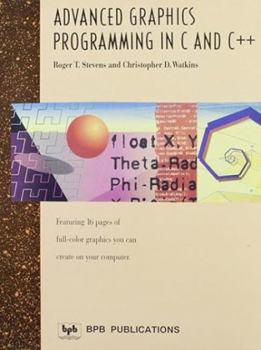Advanced Graphics Programming in C and C++
No Synopsis Available.
Format:Paperback
Language:English
ISBN:817029228X
ISBN13:9788170292289
Release Date:December 2006
Publisher:BPB Publications
Length:541 Pages
Weight:2.30 lbs.
Dimensions:9.4" x 0.8" x 7.1"
Customer Reviews
5 customer ratings | 5 reviews
There are currently no reviews. Be the first to review this work.





















